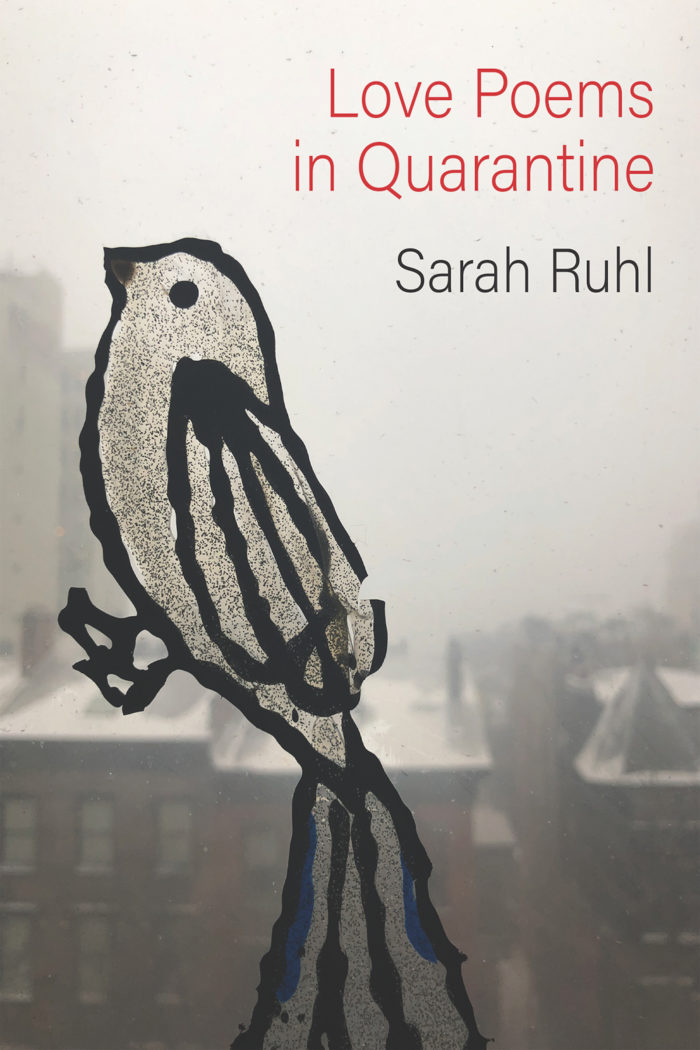
Writing from and toward “the endless desire / to be at home in the world,” Sarah Ruhl wrote Love Poems in Quarantine to mark the passage of time when all familiar landmarks disappeared. From the dawn of the COVID-19 pandemic, to the murder of George Floyd, to months of simultaneous quarantine and protest, this is—in free verse and form, lamentation and meditation—a book of days, a survival kit for spiritual malady. These poems find small solace in domestic absurdities. Even in global crisis, there is the laundry. The dog rolls in something putrid, the child interrupts a Zoom meeting, and dinner must get made, again and again. Using language to travel and touch when bodies could not, Ruhl has drawn with great care a portrait of a year unlike any other in history.
ISBN: 9781556596308
Format: Paperback
The sun in quarantine
My feet unaccustomed to grass
my eyes unaccustomed to sky
I try to be a sun for the three planets
who are my children
I borrow some of their warmth
in order to give it back to them
“Ruhl, a celebrated playwright, brings to these poems of lockdown and social unrest the same tender appreciation for resonant absurdities that she puts onstage. ‘Poems are good company / when people disappoint,’ she writes; ‘people are good company / when poems disappoint.'” ―New York Times
“In these fleet, homey, frank, and funny lyrics, most of them haiku or tanka, Ruhl seeks deep lessons in the everyday, from folding laundry to making a meal to the turn of the seasons.” ―Booklist
“Anyone who went through the last two years—which is to say, everyone—will feel embraced by these pieces.” ―Washington Post Book Club
“Structurally, Ruhl’s poems vary in stanza and syllable count, but tonally, they fall in line with the same gentle, inquisitive voice she uses in our interview on Zoom. This softness, however, should not be confused for weakness—her words still pack a punch. It’s a trick the collection plays on its readers well; while part one takes a microscope to the menial, part two (“poems written after May 25, the day George Floyd was murdered”) reveals how those small moments of life can actually carry a heavy and harmful load. From a less than heartwarming comment from Ruhl’s grandmother about going to prom with the only Black boy in the neighborhood to deceptively “innocent” badgering from a white lady at a theater party about her half-Thai husband’s dark skin, the second chapter is sobering. It exposes a link between the micro-aggressive moments of discrimination that fuel the overtly violent, knee-on-neck ones.” ―Observer
